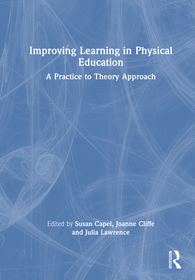
A Handbook of Economic Anthropology
Third Edition
-
20% KEDVEZMÉNY?
- A kedvezmény csak az 'Értesítés a kedvenc témákról' hírlevelünk címzettjeinek rendeléseire érvényes.
- Kiadói listaár GBP 231.00
-
110 360 Ft (105 105 Ft + 5% áfa)
Az ár azért becsült, mert a rendelés pillanatában nem lehet pontosan tudni, hogy a beérkezéskor milyen lesz a forint árfolyama az adott termék eredeti devizájához képest. Ha a forint romlana, kissé többet, ha javulna, kissé kevesebbet kell majd fizetnie.
- Kedvezmény(ek) 20% (cc. 22 072 Ft off)
- Kedvezményes ár 88 288 Ft (84 084 Ft + 5% áfa)
Iratkozzon fel most és részesüljön kedvezőbb árainkból!
Feliratkozom
110 360 Ft

Beszerezhetőség
Becsült beszerzési idő: A Prosperónál jelenleg nincsen raktáron, de a kiadónál igen. Beszerzés kb. 3-5 hét..
A Prosperónál jelenleg nincsen raktáron.
Why don't you give exact delivery time?
A beszerzés időigényét az eddigi tapasztalatokra alapozva adjuk meg. Azért becsült, mert a terméket külföldről hozzuk be, így a kiadó kiszolgálásának pillanatnyi gyorsaságától is függ. A megadottnál gyorsabb és lassabb szállítás is elképzelhető, de mindent megteszünk, hogy Ön a lehető leghamarabb jusson hozzá a termékhez.
A termék adatai:
- Kiadás sorszáma 3
- Kiadó Edward Elgar Publishing
- Megjelenés dátuma 2022. május 13.
- ISBN 9781839108914
- Kötéstípus Keménykötés
- Terjedelem560 oldal
- Méret 244x169 mm
- Súly 1098 g
- Nyelv angol 261
Kategóriák
Hosszú leírás:
Offering a new and comprehensive overview of important topics and orientations in the anthropological study of economic life, this invigorating third edition of A Handbook of Economic Anthropology addresses key changes in the decade since the previous edition in people’s economic lives and environments, as well as in intellectual interest among scholars.
The Handbook contains diverse reflections on the economic turmoil of 2008 and the austerity that followed. Containing 35 newly commissioned chapters from important scholars in the field, it covers the nature of work and the changing ways people think about it, as stable jobs give way to short term work and the platform economy, as well as the expansion of the financial sector and efforts to control it. Chapters further explore social reproduction, the maintenance and regeneration of households and social relations over time, as well as the increasing concern with value, morality and ethics, both as things that motivate people and as policy orientations.
This will be a critical read for academic anthropologists looking for a state-of-the-art and thorough reference work for this key area of the discipline. Economic sociologists and geographers, as well as heterodox economists will also benefit from the broad range of empirical work and theoretical standpoints explored.
Offering a new and comprehensive overview of important topics and orientations in the anthropological study of economic life, this invigorating third edition of A Handbook of Economic Anthropology addresses key changes in the decade since the previous edition in people’s economic lives and environments, as well as in intellectual interest among scholars.
‘A Handbook of Economic Anthropology accomplishes that rare feat of surveying the state-of-the-art in the field while also pushing the boundaries of research with new ideas and interpretations. The essays are compelling in their own right, but together they provide a comprehensive look at economic anthropology today and point the way for future work.’
Tartalomjegyzék:
Contents:
1 Introducing economic anthropology 1
James G. Carrier
PART I ORIENTATIONS
2 Marx and political economy 10
Don Robotham
3 Polanyi and social economy 24
Barry L. Isaac
4 Mauss and the gift 35
Andrew Sanchez
5 Community and economy: economy’s base 45
Stephen Gudeman
6 Provisioning and the household 56
Susana Narotzky
PART II ELEMENTS
7 Natural resources: the twice-hidden abode of economic processes 72
Jaume Franquesa
8 Property 85
David Sneath
9 Production 98
Rebecca Prentice
10 Labour 110
Charlotte Bruckermann
11 Circulation and its forms 121
Maxim Bolt
12 Markets 136
Mark Busse
13 Consumption 149
Rudi Colloredo-Mansfeld and Aaron C. Delgaty
14 Waste: the first and final frontier 162
Jacob Doherty
PART III INTEGRATIONS
15 Gender: feminist perspectives and economic anthropology 176
Victoria Goddard and Frances Pine
16 Environment and economy: Great divide to great acceleration 191
Eric Hirsch
17 Ritual, rationality and intersections between economy and religion 204
Simon Coleman
18 Kinship and economy 216
Lale Yalçın-Heckmann
19 Migration 227
İbrahim Sirkeci and Armağan Teke Lloyd
20 Morality 239
Irene Sabaté Muriel
21 Archaeology and markets 251
Douglas K. Smit
PART IV ISSUES
22 Economic ethicising 266
Stefanie Mauksch
23 The good life 277
Matthew Doyle
24 Emerging varieties of work 289
Ivan Rajković
25 Anthropology’s brief (?) obsession with neoliberalism 303
Thomas Dunk
26 Global inequality 316
Jason Hickel
27 Underlying transfers 331
Anthony J. Pickles
28 Mass mobilisations 341
Ida Susser
29 Business 353
Greg Urban
30 Commodity chains 368
André Thiemann
31 Instability 379
Donald M. Nonini
32 Anthropology with or without Home 392
Andreas Streinzer
33 Activist anthropology 406
Katharina Bodirsky
PART V AFTER THE CRISIS
34 The nature of the crisis 420
Nathan Coben
35 Society is debt 433
Anush Kapadia
36 Financialisation 447
Richard H. Robbins
37 Austerity 461
Theodore Powers
38 Financial regulation 473
Daniel Seabra Lopes
39 Alternative economies 487
Patrick O’Hare
40 After the revolutions: incremental change in contemporary economics 500
Michael Blim
Index









